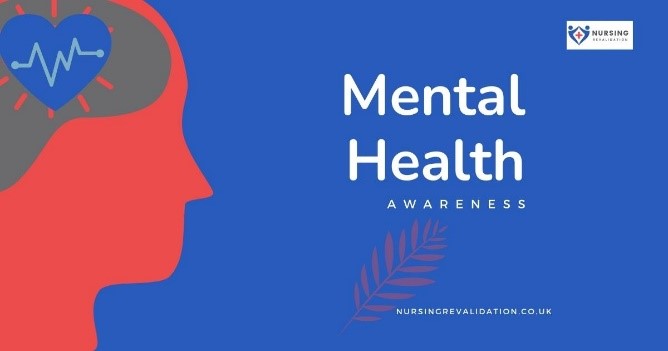Mental health awareness is important same as physical health. While everyone is aware of the signs and treatment options for common illnesses that impact their loved ones, but many individuals are unaware of how to take care of their own mental health. In this blog you will get brief introduction to mental health and how you can identify and support your loved ones.
What is mental health?
Mental health consists of our emotional, psychological, and social well-being. It has an impact on the way we think, feel, and act and influences how we deal with stress, interact with others, and make decisions. Mental health is vital at all stages of life, including childhood, adolescence, and adulthood.
Mental health disorders
A mental illness, also called mental health disorders, refers to a wide range of mental health conditions. It causes problems with thinking, behavior, energy, or emotion, making it difficult to comply with everyday life responsibilities. Genetics, brain chemistry, brain anatomy, trauma, and/or having another medical condition, such as heart disease, are among the complicated causes of these diseases that are being researched.
Symptoms of mental health
Depending on the diagnosis, circumstances, and other factors, the signs and symptoms of mental illness might vary. The following are some examples of indications and symptoms:
- Anxieties or worries
- Feelings of guilt
- Extreme mood shifts of highs and lows
- Withdrawal from friends and activities
- Significant exhaustion
- Low energy
- Sleeping issues
- Changes in eating habits
- Anger, hostility or violence
Physical difficulties, such as stomach pain, back pain, headaches, or other inexplicable aches and pains, can sometimes be indications of a mental health disorder.
Effects of discrimination and Stigma
According to people with mental health issues, stigma and discrimination, can exacerbate their problems and make recovery more difficult. Mental health issues are frequent, affecting tens of thousands of people in the United Kingdom. Despite this, mental health still carries a severe stigma (bad attitude). Discrimination (negative treatment) can occur in many facets of a person’s life if they have a mental health disorder.
Many people’s issues are aggravated by stigma and discrimination. It can come from a variety of sources, including society, employers, the media, and even our own friends and family members. You might even develop internalized stigma, in which you believe negative messages or stereotypes about yourselves.
Stigma and discrimination can also make someone’s mental health problems worse, and delay or stop them getting help. Social isolation, poor housing, unemployment and poverty are all linked to mental ill health. So, stigma and discrimination can trap people in a cycle of illness.
You may face more than one type of stigma: for example, you may also be stigmatized because of your race, gender, sexuality or disability. This can make life even harder.
Supporting a person with mental health
If you know someone struggling with their mental health, there are lots of things you can do. Find out how you can help and support them. There are some general strategies that you can use to help:
Set aside time with no interruptions:
It’s critical to create a distraction-free, open, and nonjudgmental environment.
Allow them to offer as much or as little information as they wish:
Allow them to guide the conversation at their own speed. Don’t make them feel obligated to tell you anything they aren’t ready to share. Speaking requires a great deal of faith and guts. You might be the first person they’ve had the opportunity to speak with about this.
Don’t make assumptions about their sentiments or try to diagnose them
You are unlikely to be a medical expert, and while you may be willing to listen and offer support, you are not a qualified counsellor.
Ask open-ended questions
“Why don’t you tell me how you’re feeling?” instead of “I can see you’re in a bad mood.” Try to use neutral words. Allow time for the person to respond.
Discuss the importance of self-care
Discuss techniques to de-stress or practise self-care with them and see if they find anything useful. Exercising, eating a nutritious diet, and getting enough sleep can all assist to maintain mental health and happiness.
Pay attention to what they have to say
Make sure you understand what they’ve said by repeating it back to them. You don’t have to agree with what they’re saying, but demonstrating that you understand how they feel shows that you value their feelings.
To learn more about mental health, stigmas, causes and how to support people, take mental health awareness course. The course will teach you how to identify, understand and respond to mental health. Become part of a movement to change the culture around mental health and ne a responsible person.

